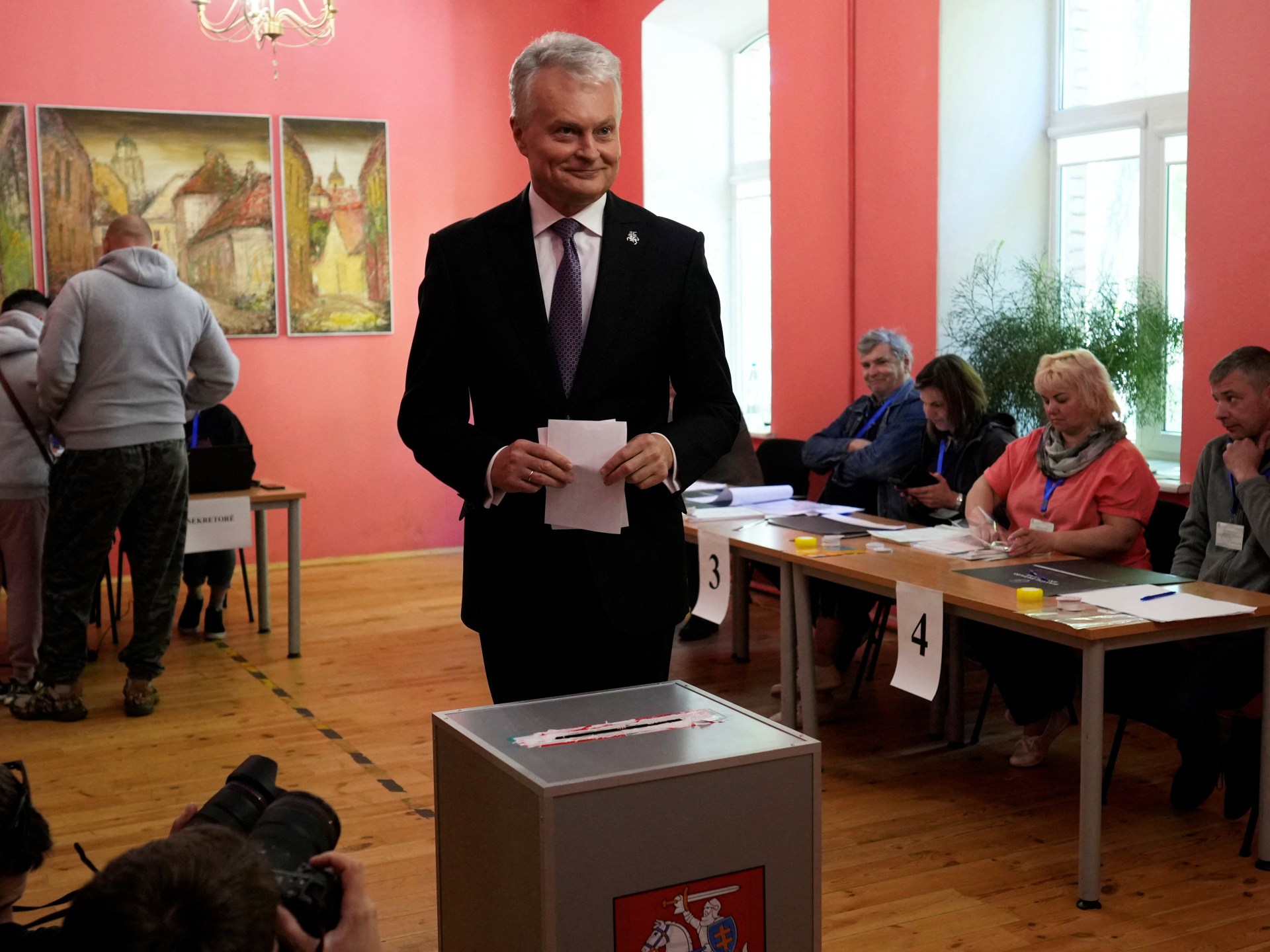Prime Minister Ingrida Simonyte conceded defeat in the final round of the Baltic nation’s presidential election.
Lithuania’s President Gitanas Nauseda has declared victory in the final round of the Baltic nation’s presidential election, as partial results showed him far ahead in the two-way race against Prime Minister Ingrida Simonyte.
Ballots from nearly 90 percent of polling stations on Sunday showed Nauseda, 60, winning roughly three-quarters of the vote, followed by Simonyte, 49, from the ruling centre-right Homeland Union party.
Simonyte conceded defeat in comments to reporters and congratulated Nauseda.
This is the second time Nauseda and Simonyte have competed in a presidential run-off election. In 2019, Nauseda beat Simonyte with 66 percent of the vote.
As president, Nauseda has a semi-executive role, which includes heading the armed forces, chairing the defence and national security policy body and representing the country at NATO and European Union summits.
The former senior economist with the Swedish banking group SEB, who is not affiliated with any party, won the first round of the election on May 12 with 44 percent of the votes, short of the 50 percent he needed for an outright victory.
Simonyte was the only woman out of eight candidates in the first round and came second with 20 percent.
Both Nauseda and Simonyte support increasing defence spending to at least 3 percent of Lithuania’s gross domestic product, from the 2.75 percent planned for this year, in the wake of Russia’s 2022 invasion of Ukraine.
Like other Baltic nations, Lithuania worries it could be Moscow’s next target. Russia’s President Vladimir Putin has said he has no intention of attacking any NATO countries.
The uneasy relationship between Nauseda and Simonyte has also caught the limelight in foreign policy debates, most notably on Lithuania’s relations with China.
Bilateral ties turned tense in 2021, when Vilnius allowed Taiwan to open a de facto embassy under the island’s name, a departure from the common diplomatic practice of using the name of the capital, Taipei, to avoid angering Beijing.
China, which considers self-ruled Taiwan a part of its territory, downgraded diplomatic relations with Vilnius and blocked its exports, leading some Lithuanian politicians to urge a restoration of relations for the sake of the economy.
Check out our Latest News and Follow us at Facebook
Original Source

